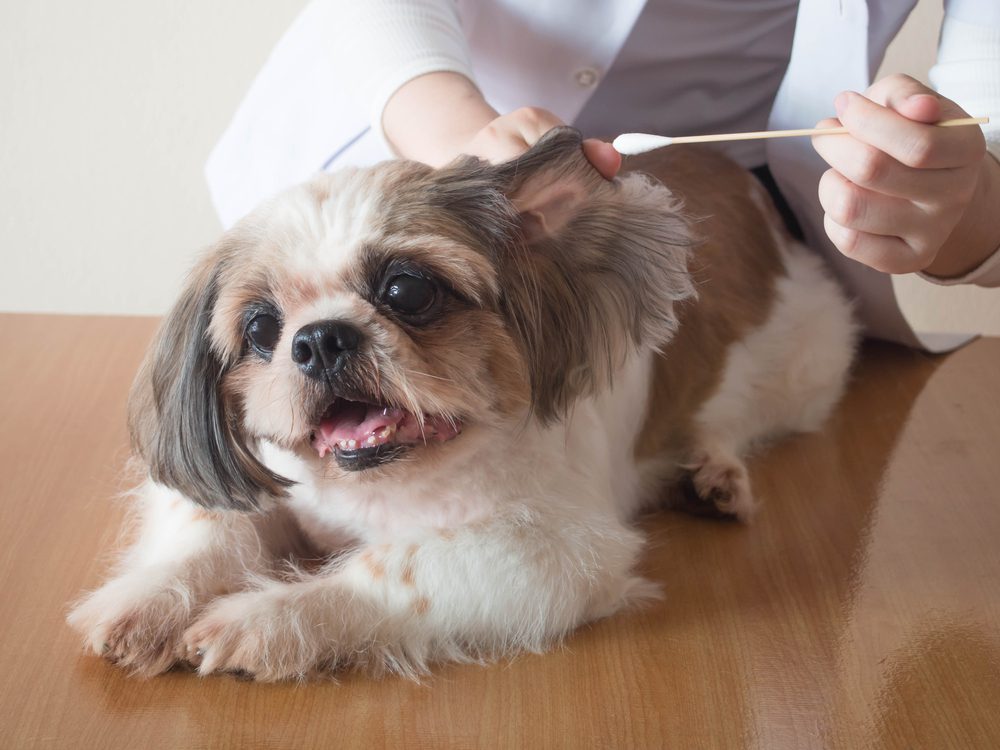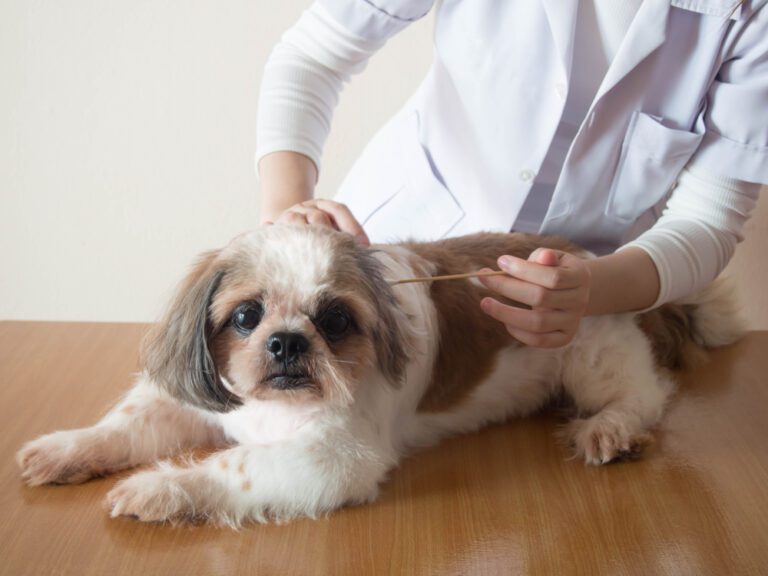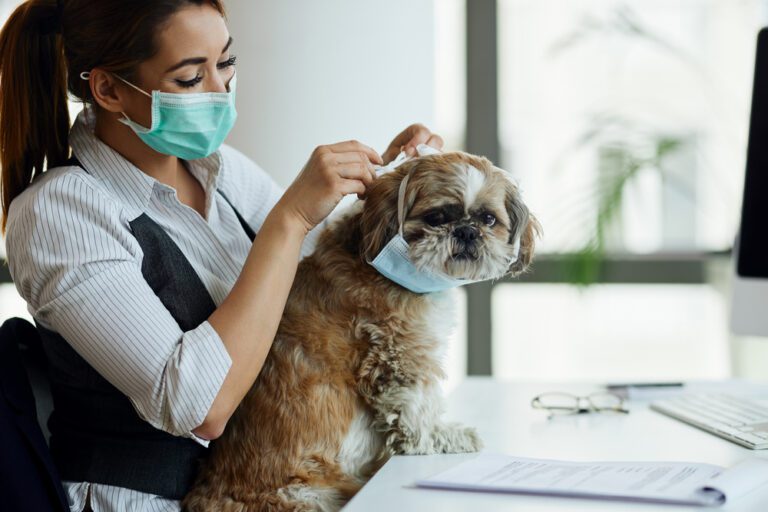Why Does My Shih Tzu Shake: 14 Causes (How To Manage?)
Have you ever noticed your Shih Tzu pup shivering or shaking and wondered, What’s happening? It’s not just you feeling puzzled; many pet owners scratch their heads over this. With their adorable faces and fluffy coats, Shih Tzus are not just fashion statements but part of our families who sometimes act in ways that make us worry. But don’t fret! Understanding why your furry friend shakes is the first step to helping them feel better.
Sometimes, the shaking is because they’re excited to see you or just chilly. However, there are moments when their shaking could be a whisper of something more serious, calling for our attention. From feeling under the weather to needing an extra cuddle, there are many reasons behind their trembles.
In this journey we’re about to embark on, we’ll explore the hills and valleys of why Shih Tzus shakes – from the harmless reasons that bring a smile to our faces to the more serious ones that prompt a vet visit. We’ll dive into the cozy, the quirky, and the must-knows of caring for our shaking pals, ensuring that by the end, you’ll not only understand your Shih Tzu’s secret language of shakes but also know how to respond with the best care possible. So, buckle up, and let’s decode the mystery of the shaking Shih Tzu together, ensuring they live their happiest, healthiest lives by our sides.
Should I Be Worried About My Dog’s Shaking?
It’s not unusual for your canine companion to shake occasionally, especially if nervous or excited. But if you notice your dog shaking more frequently or for extended periods than usual, it could be a sign that something serious is happening.
These shakes can be caused by anxiety, pain, nausea, and even an infection, so it’s best to get your pup checked out at the veterinarian immediately. If anything is seriously wrong, you can begin treatment and get your furry friend feeling better soon.
Reasons why do Shih Tzus Shake
We’ve compiled a list of 14 reasons why Shih Tzus shakes and how you can address them.
1. Generalized Tremor Syndrome
This is an inherited condition that causes your pup to shake uncontrollably. Unfortunately, this disease can go lifelong for some dogs, but the tremors can go away for most dogs by giving them some steroids, e.g., prednisone, which suppresses the immune system.
2. Cold Temperatures
Just like humans, Shih Tzus get cold, too. If your pup is shivering in cold temperatures, keep them warm and comfortable.
3. Excitement
If your furry friend is shaking from excitement, it’s best to let them calm down before addressing any issues or playing with them.
4. Stress, Anxiety, and Fear
Dogs can get stressed or anxious about specific situations or environments and often shake due to these emotions. Try distracting your pup with toys or treats if they start to shake when faced with something stressful or intimidating.
5. Seeking Attention
Sometimes, dogs shake to get their owner’s attention – usually because they want something.
It’s important to reward positive behavior and discourage bad habits like begging for attention through shaking by providing treats when your puppy behaves appropriately or ignores the undesirable behavior altogether.
6. Old Age & Nausea
As dogs get older, they may experience health issues such as nausea, which can cause them to shake more often than usual. In this case, it’s best to take them to the vet for further inspection and treatment if necessary.
7. Distemper
Distemper is a viral infection that affects dogs and can cause shaking and other symptoms such as coughing and fever.
8. Toxic Ingestion
If your pup has ingested something toxic (like chocolate), this could also lead to tremors throughout their body, which should be addressed immediately by visiting the vet.
9. Seizures/Tremors
Seizures/tremors are also possible in some breeds of dog like Shih Tzu due to both genetic factors (e.g., epilepsy) or environmental triggers such as loud noises/flash photography, so it’s essential to always watch out for signs/symptoms of either one of these conditions if you think your pup might be affected by either one!
10. To Dry Off
You may notice your pup shaking after having recently been in the water. Dogs use this instinctual response to dry off quickly, so there’s no need for concern here unless they seem distressed!
11. Ear Problems
Dogs have sensitive ears that are prone to infections, which can cause excessive ear scratching (which leads back around full circle back into shaking)

12. Muscle Weakness or Injury
Any muscle weakness or injury can lead a dog to shake more than usual; this should be checked out by a vet ASAP so that proper treatment can be administered accordingly.
13. Allergic Reactions, Toxins, Bites, and Stings
Allergy issues should all be treated immediately since some reactions could potentially put your pup’s life at risk
14. Low Blood Sugar
Hypoglycemia isn’t just common among young pups – adult dogs can also suffer from low blood sugar. A sudden drop in blood sugar levels could easily lead to frequent shakes, so ensure you’re watching their diet!
Forms of Shih Tzu Shaking
Here are some forms of shaking in Shih Tzus:
1. Shih Tzu Shaking and Vomiting
If your dog is vomiting and shaking simultaneously, this could signify a more serious issue. It could be anything from a gastrointestinal problem like an infection, blockage, or even something neurological like a seizure disorder.
If your pup is exhibiting both of these behaviors at once, it’s best to take them to your vet for an examination as soon as possible.
2. Shih Tzu Shaking and Panting
When dogs feel excited or anxious, they may pant and shake simultaneously. This usually doesn’t cause too much concern unless it persists over time or if other symptoms are present, such as lethargy or diarrhea.
If this behavior persists for more than 24 hours or your pup seems generally unwell, you should call your vet immediately.
3. Shih Tzu Shaking Back Legs
If your pup is only shaking its back legs, this could indicate a muscle problem such as arthritis or hip dysplasia.
It also might just be cold! But no matter the cause, it’s always best to get checked out by a vet just in case something more serious requires treatment.
4. Shih Tzu Shaking Head
Ear infections can often cause this type of shaking due to wax buildup in the ears, which can cause irritation and pain for your pup.
It could also indicate allergies or an infection elsewhere in their body, like their throat or sinuses, that could use treatment from a professional veterinarian.
How to manage Shih Tzu shaking?
Once you’ve identified the cause behind your pup’s tremor, you’ll need to take steps toward managing it so that it doesn’t become an ongoing problem for them.
Here are some tips for helping keep tremors at bay:
- Provide Plenty Of Exercises: Regular exercise helps keep pups healthy mentally and physically – ensuring they get plenty of activity each day will help keep tremors from becoming too severe or frequent!
- Adapt To Their Needs: Pay attention to when your pup starts trembling and adjust accordingly – if excitement makes them shake too much, then maybe reduce their stimulation levels; if fear makes them shake, then provide reassurance and comfort.
- Speak To A Vet: Talk with a vet about any concerns you have regarding your pup’s health – they can provide insights into possible medical conditions or treatments that could help manage any underlying health issues that might be causing tremors.
Conclusion
If your Shih Tzu is exhibiting excessive shaking or displaying any other concerning behavior, seek advice from your vet as soon as possible. Nonetheless, there are ways to help manage your pup’s shaking. Remaining calm when around them can encourage feelings of safety, which will help reduce stress and lessen the amount they shake. Making sure they exercise regularly and get enough sleep helps alleviate some of their anxiousness, making them less likely to shake. Whatever you decide to do next, stay educated on the issue and keep an eye on your pup so you know if their behavior changes at all.







